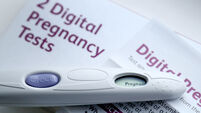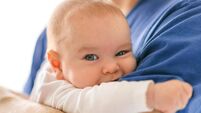Cork hospital study reveals gaps in people's knowledge around fertility treatments

Research from Cork University Maternity Hospital shows younger people are missing out on timely treatment because they don't seek medical help even when they've been unsuccessfully trying to get pregnant for a year or more.
People have “false confidence” in fertility treatments for older women, with three-quarters overestimating the chances of getting pregnant, research from Cork University Maternity Hospital has revealed.
Younger people are missing out on timely treatment because they don't seek medical help even when they've been unsuccessfully trying to get pregnant for a year or more.













